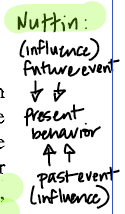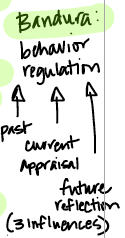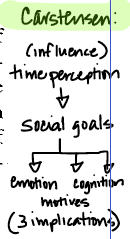Anachronisms of the Constitution + consequences of an aging democracy => a legislature/politics built for "show"
In a provocative June 2018 essay in Commentary, the political scientist Yuval Levin posited that 231 years on, Congress had acquired a problem James Madison never anticipated: a reluctance to compete with the other two branches of government in the exercise of power. Partisanship, he concluded, had displaced ambition to legislate. Senators and representatives, he wrote, now “see themselves as players in a larger political ecosystem the point of which is not legislating or governing but rather engaging in a kind of performative outrage for a partisan audience.” Levin didn’t put it this way, but he seemed to be suggesting that Congress had grown decadent, like fin de siècle Vienna, but without the solace of Sacher tortes.
The U.S. doesn’t have a Politburo, but if you calculate the median age of the president, the speaker of the House, the majority leader of the Senate, and the three Democrats leading in the presidential polls for 2020, the median age is … uh … 77.
None of this means a septuagenarian can’t function effectively as a political leader. House Speaker Nancy Pelosi and Mitch McConnell are 79 and 77, respectively, and by all reports they’re operating at peak mental capacity. But to affirm that not all elderly people are impaired cognitively is very different from affirming that none is.
Wisdom may be more valuable in the digital age than ever before, because the velocity of information and normative judgments on social media, cable news and elsewhere constantly threatens to make glib idiots of us all.
But here’s the rub: The aging of America’s ruling class does not automatically increase its experience level. In presidential politics, notes Brookings Institution senior fellow Jonathan Rauch, political experience, which “used to be a selling point,” has “become a liability. Voters and the public have come to see experience as inauthenticity.”
In a November 2015 Atlantic article, Rauch plotted experience level for presidential candidates from 1960 to 2012. His graph showed a clear increase in experience level among the losers and a corresponding decrease among the winners. Gerald Ford lost to Jimmy Carter. George H.W. Bush won with more political experience than Michael Dukakis, but four years later lost to Bill Clinton, who had less. John McCain lost to Barack Obama, who’d been in national politics a mere four years.
Donald Trump, who is 73, entered the Oval Office with no political experience at all. The single greatest mental compensation that age provides was therefore unavailable to the oldest president in American history.
Old people really like to vote. In 2016, for instance, 71 percent of eligible elderly voters reported to the Census that they voted. For other age cohorts, the turnout percentages were 67 percent (aged 45-64), 59 percent (aged 30-44) and 46 percent (aged 18-29).
You often hear older Americans complain that the younger generation, with its fixation on social media, can’t distinguish between fact and opinion, making it difficult for them to apply the critical thinking necessary to consume news and be responsible citizens. A 2018 Pew survey found that Americans do indeed experience great difficulty telling these two things apart: Given five factual statements and five statements of opinion, a majority of Americans couldn’t identify them properly.
But younger Americans actually scored better on this test than older ones. Thirty-two percent of 18-49 year-olds were able to identify all five factual statements, and 44 percent were able to identify all five statements of opinion. Among the over-50 cohort, only 20 percent identified all five factual statements correctly, and only 26 percent did the same with the statements of opinion.
The list of the Constitution’s anachronisms and ambiguities is long.
Article One says Congress may “regulate Commerce with foreign Nations, and among the several States,” phrasing that strictly limited the regulation of private business at the federal level until the New Deal, when the Supreme Court reversed itself and concluded the federal government’s power to regulate private business was pretty vast. Had the Founders grasped that the modern economy would all but eliminate purely local commerce—and that it could, unchecked, alter the very climate of planet earth—they might have had more to say on the subject. As things stand, the powers of the regulatory state are the subject of endless legal combat.
Article Two says you must be a “natural born Citizen” to be president, which excludes for no apparent reason Arnold Schwarzenegger and Jennifer Granholm, who previously governed two of the nation’s most populous states. The racist “birther” movement that challenged the legality of Barack Obama’s presidency (and that ushered Donald Trump onto the national political stage) wouldn’t have been possible without Article Two.
Article Two also established that presidents be elected through the Electoral College, an antique mechanism borrowed from the Holy Roman Empire that twice during the past two decades delivered the presidency to the popular-vote loser. Some people have a problem with that.
The Second Amendment frames the right to bear arms within the context of “well-regulated” state militias that no longer exist, an ambiguity that the Supreme Court interpreted in 2008 to mean the Constitution protected the right to bear arms, after holding for the preceding seven decades that it did not. Had the Founders known the extent to which the nation would tear itself apart over the regulation of firearms more deadly than they ever imagined, they might have laid down a few broad parameters.
And so on. None of this would matter much if our government were more amenable to reconsidering first principles, but that’s getting harder, too. The Constitution can be amended, and it has been, 27 times. But growing political polarization in recent years has made that difficult. Only two constitutional amendments were ratified during the past half-century (one giving 18-year-olds the right to vote and another, more anodyne amendment that makes it a little harder for Congress to give itself a raise).




